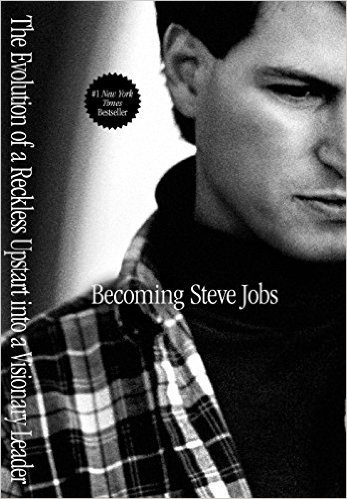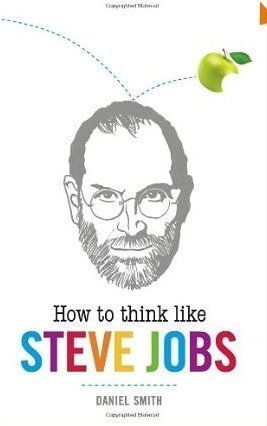
Steve Jobs
Book Description
Revolutionary ideas meet relentless ambition in "Steve Jobs" by Walter Isaacson. This gripping biography unveils the man behind the iconic Apple brand, a visionary whose passion for perfection sparked a technological revolution. Witness the electrifying highs and devastating lows, as Jobs navigates fierce rivalries, personal struggles, and groundbreaking innovations that changed the world. Each page reveals the enigma of a genius whose bold decisions shaped an era, making the impossible possible. Can the brilliance of one individual truly alter the course of history?
Quick Book Summary
"Steve Jobs" by Walter Isaacson is an in-depth biography chronicling the life, career, and legacy of Apple’s visionary co-founder. Drawing on exclusive interviews with Jobs, his family, friends, and colleagues, Isaacson paints a complex portrait of a man whose relentless drive for innovation redefined the technology landscape. The book captures Jobs’s extraordinary journey—from his adoptive childhood and countercultural youth, to the founding of Apple, his dramatic ouster, and triumphant return that spurred the creation of iconic products. It explores his mercurial personality, perfectionism, and capacity to inspire both admiration and frustration. Through the highs and lows of his personal and professional life, the biography illuminates how Jobs’s singular vision and uncompromising standards transformed multiple industries, leaving an indelible mark on modern culture.
Summary of Key Ideas
Table of Contents
Visionary Leadership and Invention
From his early years, Steve Jobs’s life was shaped by an intense sense of uniqueness and destiny. Adopted as an infant, Jobs’s relationship with his family and upbringing in Silicon Valley sparked a fascination with electronics and design. As a student, he was deeply influenced by the counterculture and calligraphy, sowing seeds for a later obsession with aesthetics. Jobs’s partnership with Steve Wozniak led to the creation of Apple in his garage, blending innovative technology with user-friendly design. The launch of the Apple II marked a breakthrough, positioning Jobs at the forefront of a new tech revolution.
The Pursuit of Perfection and Design
Jobs’s approach to leadership was defined by a fierce pursuit of perfection and a passion for marrying art with technology. He demanded excellence, often pushing his teams to their limits—and beyond. This drive yielded groundbreaking products like the Macintosh, though it also led to intense workplace conflicts and a reputation for being abrasive and uncompromising. Still, Jobs’s belief in intuitive, beautifully designed products set Apple apart in an era dominated by functionality over form.
Managing Creativity and Conflict
His career was marked by dramatic rises and falls. Ousted from Apple after internal disputes, Jobs founded NeXT, striving to create a next-generation computer, and purchased Pixar, ushering in a new era of computer animation. While NeXT struggled commercially, Pixar’s collaboration with Disney produced hits like "Toy Story," demonstrating Jobs’s ability to reshape industries through vision, risk-taking, and tenacity. His time away from Apple was pivotal, teaching him humility and strengthening his leadership skills.
Personal Growth, Relationships, and Legacy
When Jobs returned to a floundering Apple in 1997, his vision and uncompromising standards fueled a renaissance. He streamlined products, forged groundbreaking partnerships, and spearheaded the creation of the iMac, iPod, iTunes, iPhone, and iPad. Jobs’s hands-on approach, obsession with simplicity, and sense for consumer delight not only saved Apple from collapse but redefined global technology, design, and how people interact with digital media.
Despite health struggles and sometimes difficult personal relationships, Jobs’s intensity left a lasting impact. He grappled with fatherhood, reconciled with friends, and sought meaning as he faced mortality. Walter Isaacson’s biography ultimately reveals a man whose passion, flaws, and genius drove him to "put a dent in the universe," inspiring countless others and shaping the way the world connects with technology.
Download This Summary
Get a free PDF of this summary instantly — no email required.





